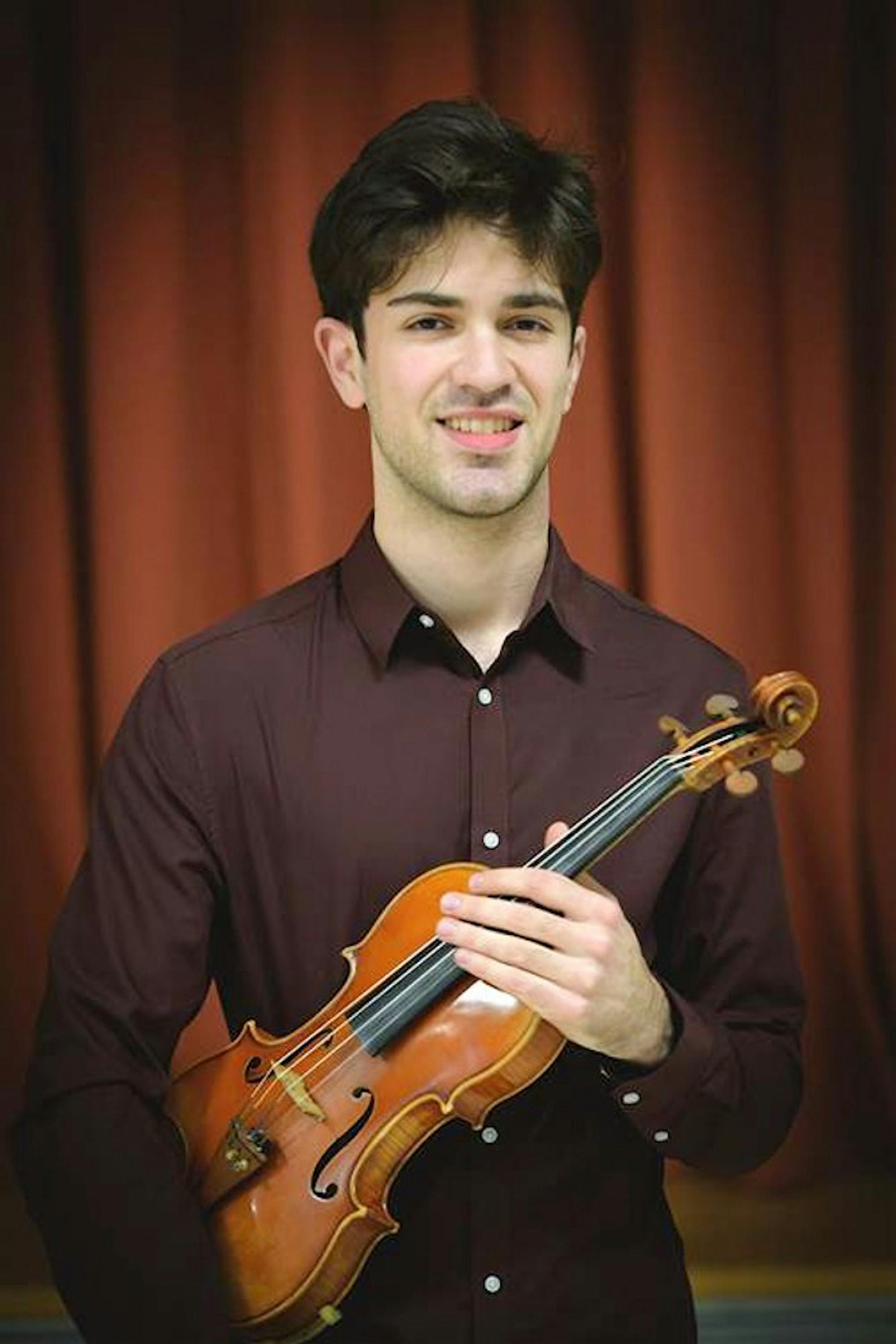After playing Ludwig van Beethoven’s “Symphony No. 9” last spring, the Dartmouth Symphony Orchestra will be performing and paying tribute to the famed composer with a piece created by another beloved composer Johannes Brahms. As part of its winter concert this Saturday, DSO will play Brahms’ “Symphony No. 1,” which is often referred to as “Beethoven’s Tenth” because of its similarities to Beethoven’s “Symphony No. 9.” The other piece, Jean Sibelius’ “Violin Concerto,” also comes from the late Romantic era and will feature Orestis Lykouropoulos ’17 on violin.
Orchestra director and conductor Filippo Ciabatti said that Lykouropoulos had been chosen from a competitive audition process that took place in June last year. In his audition, Lykouropoulos had played “Violin Concerto,” which Ciabatti said was one of the greatest milestones in the literature of violin and orchestra music.
Lykouropoulos said that he had chosen to audition with the piece because he knew it fairly well and because it was one of his favorite pieces. He said that he had been able to work through technical difficulties through the audition process and was now working on playing with the orchestra.
“This is the first time I played with an orchestra so that’s a whole different set up and challenge to learn,” Lykouropoulos said. “I’ve been lucky to go to rehearsals since week four or five [of the term], which is unusual. Typically, soloists get two or three rehearsals with the orchestra before the actual performance. I’ve learned a lot in the process.”
Ciabatti said Lykouropoulos was a very committed student of the orchestra who collaborated with both Ciabatti and Dartmouth music professor Miki-Sophia Cloud in preparation for the concert. Lykouropoulos said that he has been a member of the orchestra since his freshman fall term, where he joined as a member of the first violin section. Lykouropoulos was also the assistant concertmaster in his junior year and senior year fall term.
“Being in DSO has been a wonderful experience, both in terms of my musical education [and in] meeting wonderful people and community members and professional staff,” Lykouropoulos said.
Ciabatti said that he felt it was appropriate to pair Sibelius’ concerto with another classical milestone in the symphony, the Brahms work. He said that Brahms, who was born six years after Beethoven died, took over 20 years to publish his own symphony because he felt the weight of Beethoven’s work.
“All of these pieces are important for the development of the group,” Ciabatti said.
At the time Brahms’ piece was written, Ciabatti notes that it was considered very innovative because of its complex structure that resembled a piece by Johann Sebastian Bach and also its theatrical effects, which resembled Beethoven’s work. He said the piece moves from a dark and dramatic first movement to a final movement that recalls Beethoven’s Ninth in its optimistic tone, especially in regards to mankind.
“In this complicated time we’re living in right now, I think that art like this symphony can bring such a powerful message of profound optimism, that human beings can really live together and bring good to this world,” Ciabatti said. “That stands as a modern message that can arrive to all of the students and [people] in the Dartmouth community as well as the people around the world.”
Bryan Shin ’20, a violin player in the second violin section of the orchestra, said that the Brahms piece is a large work with many parts, and that the orchestra did not have enough Dartmouth players to fill all of them. He said that a fourth or fifth of the orchestra was hired to fill those parts.
“This term, we’ve been missing half of our orchestra, so the music never quite sounds right [during rehearsals],” he said. “It’s been hard to rehearse since we need to rely on other sections, but it will be better when the professionals come in.”
Shin said that this was his first time playing with professional musicians, who are Hanover locals. He said that in playing with them, he was able to feel a connection to Hanover.
“I think generally, the orchestra sounds better when the professionals come in because they can help guide us [during rehearsal],” Shin said.
Shin said that because Sibelius’ concerto is very different from Brahms’ symphony, the two works provided an interesting contrast.
“Brahms’ [piece] is a really big royal, majestic symphony with fanfare, but Sibelius wrote this icy, cold and eerie piece that makes you feel anxious,” Shin said. “It’s a great piece selection to bring them together.”
Ciabatti said that he wanted to stress that while most people assume classical music is something that belongs to a certain etiquette, music speaks to everyone, especially young people.
“We don’t care about how you dress or if you follow the old etiquette of the classical music concert,” Ciabatti said. “We care about sharing the music and the profound message that the music carries to the young generation. I would encourage people to not think of this as an old ritual, but as live and modern, and now more than ever a part of the culture and heritage that great people left [us].”
The DSO’s winter concert will be held in Spaulding Auditorium at 8 p.m. There will be a pre-show talk in Faulkner Recital Hall at 7 p.m.




